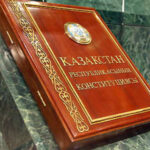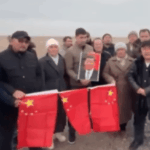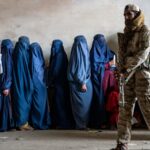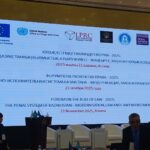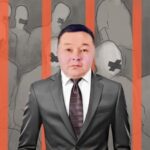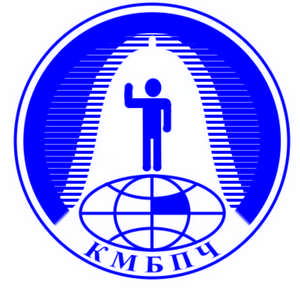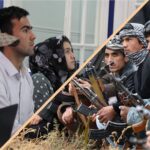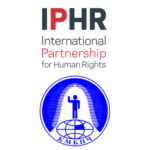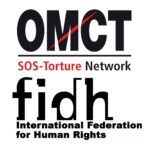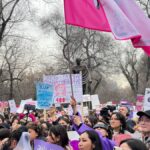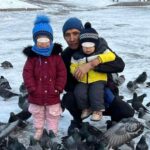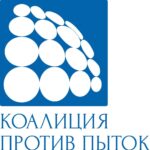18 June 2015.
We welcome the excellent report prepared by the UN Special Rapporteur on the rights to freedom of peaceful assembly and of association, Maina Kiai, on his January 2015 mission to Kazakhstan. The report, which was presented to the Human Rights Council in Geneva this week, highlights key concerns regarding the current situation and provides important recommendations on how to address existing problems. We urge the EU and other international partners to prominently raise the issues detailed in the report with Kazakhstan’s government and to insist on the implementation of the recommendations contained in it.
During his mission to Kazakhstan on 19-27 January 2015, the Special Rapporteur visited the cities of Astana, Almaty, Aktau and Zhanaozen and met with representatives of national, regional and local authorities, international organizations, as well as civil society organizations, including Kazakhstan International Bureau for Human Rights and Rule of Law (KIBHR). He also spoke to survivors and victims of the tragic December 2011 Zhanaozen events and visited imprisoned Alga! opposition party leader Vladimir Kozlov. Ahead of the Special Rapporteur’s mission, KIBHR and International Partnership for Human Rights (IPHR) submitted a joint briefing paper to his office.
The findings presented in the Special Rapporteur’s comprehensive report reflect major issues raised by human rights NGOs concerning the exercise of freedom of association and assembly, as well as the political and civil society environment in Kazakhstan. These are among the Special Rapporteur’s principal conclusions:
- “There is very limited space for the expression of dissenting political views in Kazakhstan. A web of policy, practice and perception contributes to a general environment where engaging in political activities is difficult, discouraging and sometimes dangerous.” The Special Rapporteur says that the government’s current approach to regulating political opposition “quashes dissent and pluralism in a way that is harmful to development and stability in the long term.”
- “Political parties, trade unions, public associations and religious organizations are all subject to mandatory registration through processes that are burdensome, lengthy and with uncertain outcomes.” The Special Rapporteur is also troubled that various associations “have repeatedly been denied registration.”
- A series of legal provisions “pose serious risks of criminalizing and penalizing legitimate activities of associations.” As noted by the Special Rapporteur, these include Criminal Code provisions that prohibit “incitement” of social, national or other discord, provide for sanctions for “illegal interference” of public associations in the affairs of state bodies and set out stricter punishments for certain crimes for individuals considered to be “leaders” of public associations.
- The Special Rapporteur concludes that, in violation of international law, the new Law on Trade Unions adopted last year “denies trade unions the right to freely form and join labour organizations of their choice” by “requiring mandatory affiliation to regional or sectorial federations”.
- The Special Rapporteur is also concerned that a new grant-making mechanism for public associations currently under consideration “may fall short of international standards”. He calls for the relevant draft legislation to “be limited to applications for State grants” and for the operator body proposed to be established to “be guaranteed independence, for instance, by including representatives of civil society in its composition.”
- The Special Rapporteur finds that: “In the absence of registration, religious groups are effectively banned from exercising any collective religious functions. Members, meanwhile, may face administrative sanctions if they routinely practice their rituals, even in private homes.” He notes that while authorities told him such strict regulation is necessary to counter extremism, banning peaceful religious groups may — on the contrary — contribute to fostering desperation.
- While the right to peacefully assemble is guaranteed by the Constitution, “in practice, the Government’s approach to regulating assemblies renders that right meaningless.” The Special Rapporteur is concerned, in particular, that prior authorization is required, specific sites designated for holding assemblies usually are located in remote areas, “preventive detention” is used to intimidate participants, and sanctions for unauthorized assemblies are disproportionately severe.
- The Special Rapporteur notes that “there is still conflicting information” about the December 2011 events in Zhanaozen, when deadly clashes between police and demonstrators broke out following a months-long peaceful oil worker strike. He calls for an independent international inquiry into this crisis “with a view to bringing perpetrators of human rights violations to justice and to providing redress to victims.” He is also “disturbed that most of those convicted in Zhanaozen had been known to be the most active organizers” during the preceding strike and emphasizes the importance of “thorough, independent and impartial investigations into all allegations of ill-treatment” made by those arrested in relation to December 2011 events.
- Imprisoned Alga! opposition party leader Vladimir Kozlov, whom the Special Rapporteur visited, is currently serving a 7.5 year prison sentence for his alleged role in fomenting the Zhanaozen events. The Special Rapporteur concludes that “his case — particularly the fact that his conviction portrayed his legitimate and peaceful political activity as threatening the stability of the country — seems emblematic of a more general trend to marginalize political leaders voicing dissent.”
- The Special Rapporteur urges the authorities to “take prompt appropriate actions to respect and protect” the rights of human rights defenders, saying he is “seriously concerned that numerous human rights defenders have decided to stop their human rights work after being arrested.” He is also troubled by retaliatory actions against lawyers publicly speaking out on issues they have been working on, such as in the case of Zinaida Moukhortova, who has repeatedly been subjected to forced psychiatric treatment and Natalia Sokolova, who was imprisoned in 2011-2012.
- The Special Rapporteur “commends the Government’s creation of a Consultative Advisory Body or Platform for Dialogue on Human Dimension with non-governmental organizations” but urges it “not only to adopt technical recommendations [made by this body] but also embrace those recommendations that address systemic shortcomings.”
At the end of his report, the Special Rapporteur makes a set of recommendations to the authorities of Kazakhstan for how to address the concerns described in the report and improve respect for the rights to freedom of association and peaceful assembly. In a formal response to the report, Kazakhstan’s government thanks the Special Rapporteur for his work, while saying it disagrees with many of his findings and recommendations. In view of this, it is crucial that Kazakhstan’s international partners make clear to its government that constructive cooperation with UN special mechanisms does not only entail facilitating visits by them, but also adopting concrete measures to implement recommendations resulting from their visits.
The report of the Special Rapporteur on the rights to freedom of peaceful assembly and of association is available at: http://freeassembly.net/rapporteurreports/kazakhstan/ (currently only in English, a Russian and other language versions are forthcoming), and the statement made by him when presenting the report at: http://freeassembly.net/wp-content/uploads/2015/06/Statement-website_ID-SR-Kiai-.docx. The response by Kazakhstan’s government to the report, as well as additional information about the Special Rapporteur’s mission to Kazakhstan can also be found under the first link.


